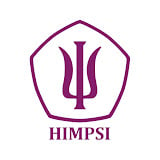THE RELATIONSHIP OF ACHIEVEMENT MOTIVATION AND ACADEMIC PROCRASTINATION OF HIGHSCHOOL STUDENTS
Abstract
To get learning outcomes at school or outside school hours, there is a phenomenon where students feel less motivated by various activities and assignments. Feelings of laziness can encourage students to postpone doing their work, so that assignments pile up. Procrastination is called procrastination (Zimmerman, in Alfina, 2014). Procrastination that often occurs in the academic environment is called academic procrastination (Salomon & Rothbulum, 1984). This phenomenon can affect the learning process until student learning outcomes. Academic procrastination can shape dishonest behavior, because students will be encouraged to look for reasons to not do the assignments or postpone them (Basco, 2010). According to Pintrich and Garcia (in Djiwandono, 2006), the existence of motivation will help students focus on learning. This study aims to determine the relationship between achievement motivation and academic procrastination to highschool students. Participants (N = 130) were highschool students in the age range of 15-18 years, who were selected using non-probability sampling techniques with purposive sampling method. The results obtained showed there is a significant relationship on the variables of achievement motivation and academic procrastination.
Keywords
Full Text:
PDFReferences
Agustiani, H. (2006). Psikologi perkembangan: Pendekatan ekologi kaitannya dengan konsep diri dan penyesuaian diri pada remaja. Bandung: Refika Aditama.
Basco, R.M. (2010). The procrastinator’s guide to getting things done. New York: The Guildford Press.
Burka, J. B & Yuen, L. M. (2008). Procrastination: why you do it, what to do about it now. US: Da Capo Press
Devakumar, M. (2012).A study of adversity quotient of secondary school students in relation to their academic self concept and achievement motivation. Retrieved fromhttp://www.peaklearning.com/documents/PEAK_GRI_devakumar.pdf
Djiwandono, S. E. (2006). Psikologipendidikan. Jakarta: Grasindo.
Doostian, Y., Fattahi, S., Goudini, A. A., Massah, O. & Daneshmand, R. (2014). The effectiveness of self regulation in student’s academic achievement motivation. Research Papers, 2(4), 261-269.
Fauzi. (2012). Hubungan antara motivasi berprestasi dengan prokrastinasi akademik pada mahasiswa Universitas Hang Tuah Surabaya yang aktif di unit kegiatan mahasiswa (UKM). Dalam http://fauziwandayana001.blogspot.com/. Diakses pada tanggal 14 Januari 2019.
Ferarri, J. R, Johnson, J.L, & McCown, W.G. (1995). Procrastination and task avoidance theory, research, and treatment. New York: Plenum Press.
Fiore, N. A. (1989). Overcoming procrastination: practice the now habit and guilt free play. New York: MJF Books.
Gafni, R. & Geri. N. (2010).Time management: procrastination tendency in individual and collaborative task. Interdiciplinary Journal of Information, Knowledge, and Management, 5, 115-125.
Ghufron, M. N., (2003). Hubungan Kontrol Diri dan Persepsi Remaja terhadap Penerapan Disiplin Orang Tua dengan Prokrastinasi Akademik. (Thesis). Jogjakarta: Program Pasca Sarjana Universitas Gadjah Mada Yogyakarta.
Gunarsa, S. D. (2003). Psikologi perkembangan. Jakarta: Gunung Mulia.
Gunarsa, S.&Gunarsa, Y. S. (2008).Psikologi perkembangan anak dan remaja.Jakarta: BPK Gunung Mulia.
Hanggara, D. S. (2014). Prokrastinasi akademik siswa kelas VII di SMP Negeri 2 Pare. Tesis. (Tidak dipublikasikan). Jakarta: Fakultas Ilmu Pendidikan, Universitas Negeri Malang.
Kirana, A., Sahrani, R., & Hastuti R. (2016). Intervensi pelatihan self-regulated learning dalam mlubisereduksi prokrastinasi akademik siswa (studi pada siswa SMPN “X” di Jakarta Barat). Jurnal Psikologi Pendidikan, 7(1), 20- 36.
Knaus, W. (2002). The procrastination workbook. USA: New Harbinger Publication.
Knaus, W. (2010). End procrastination now!: Get it done with a proven psychological approach. McGraw-Hill
Mar’at, S. (2006). Psikologi perkembangan. Bandung: Remaja Rosdakarya.
Milgram. N. (1991). Procrastination. Encyclopedia dy of human biology. New York: Academic Press.
Morgan, C. T., King, R. A., Weisz, J. R., &Schopler, J. (1986).Introduction to psychology (7th ed.). Singapore: McGraw-Hill.
Nancy. N, Harris, Sutton, R. I. (1983). Task procrastination in organization: A framework for research. Human relation, 36 (11), 987-996.
Papalia, D. E., Wendkos-Olds, & Feldman, R. D. (2007). Human development (10th ed.). New York: McGraw-Hill.
Salomon, L.J & Rothblum, E..D. (1984). Academic procrastination: Frequency and cognitive-behavioral correlate. Journal of counseling psychology, 31 (4), 503-509.
Santrock, J. W. (2004). Educational psychology (2nded.). New York: McGraw-Hill.
Santrock, J. W. (2005). Psychology (7th ed.). New York: McGraw-Hill.
Soe, H. (2013). A comparison of active and passive procrastination in relation to academic motivation. Social Behavior and Personality, 41 (5), 777-786.
Stipek, D. J. (2002).Motivation to learn: From theory to practice. Massachusetts: Allyn and Bacon.
Sukmadinata, N. S. (2005). Landasan Psikologi Proses Pendidikan. Bandung: PT. Remaja.
Sugiyono. (2006).Metode penelitian pendidikan: Pendekatan kuantitatif, kualitatif dan R&D. Bandung: Alfabeta.
Syarifuddin, H. (2009). Motivasi dalam pembelajaran. Diunduh darihttp://riff26.blogspot.com/2009/02/motivasidalampembelajaran.html
Tuckman, B. W. (1991). Educational and psychological measurement, 51(2), 473-480.
Wisudawati, W. N. (2010). Perbedaan Motivasi Berprestasi Antara Siswa Kelas X, XI, Dan XII Pada SMK X. Skripsi (Tidak dipublikasikan). Jakarta: Fakultas Psikologi, Universitas Tarumanagara.
DOI: http://dx.doi.org/10.22441/biopsikososial.v6i1.15893
Refbacks
- There are currently no refbacks.
Copyright (c) 2022 Biopsikososial: Jurnal Ilmiah Psikologi Fakultas Psikologi Universitas Mercubuana Jakarta
JBUMBand its articles is licensed under a Creative Commons Attribution-ShareAlike 4.0 International License.
Tim Editorial Office
JBUMB
Fakultas Psikologi, Universitas Mercu Buana
Jalan Meruya Selatan No. 1, Kembangan, Jakarta Barat, 11650, Indonesia
Phone: +6281318855243
Email: [email protected]
Website: https://publikasi.mercubuana.ac.id/index.php/biopsikososial/index

















